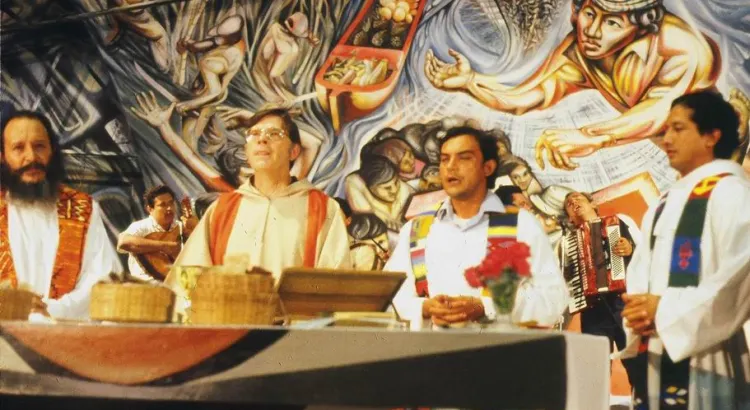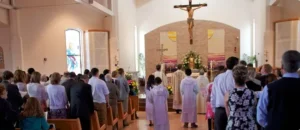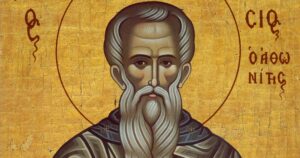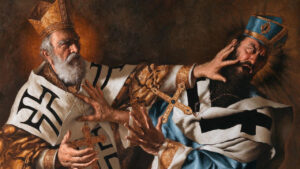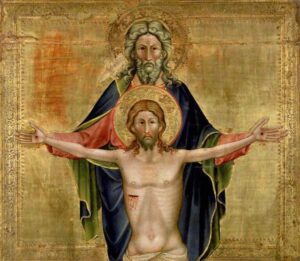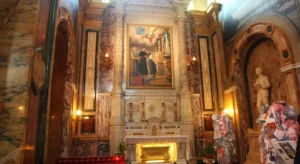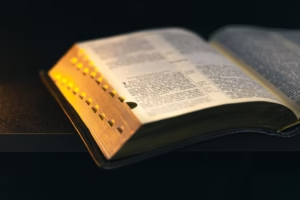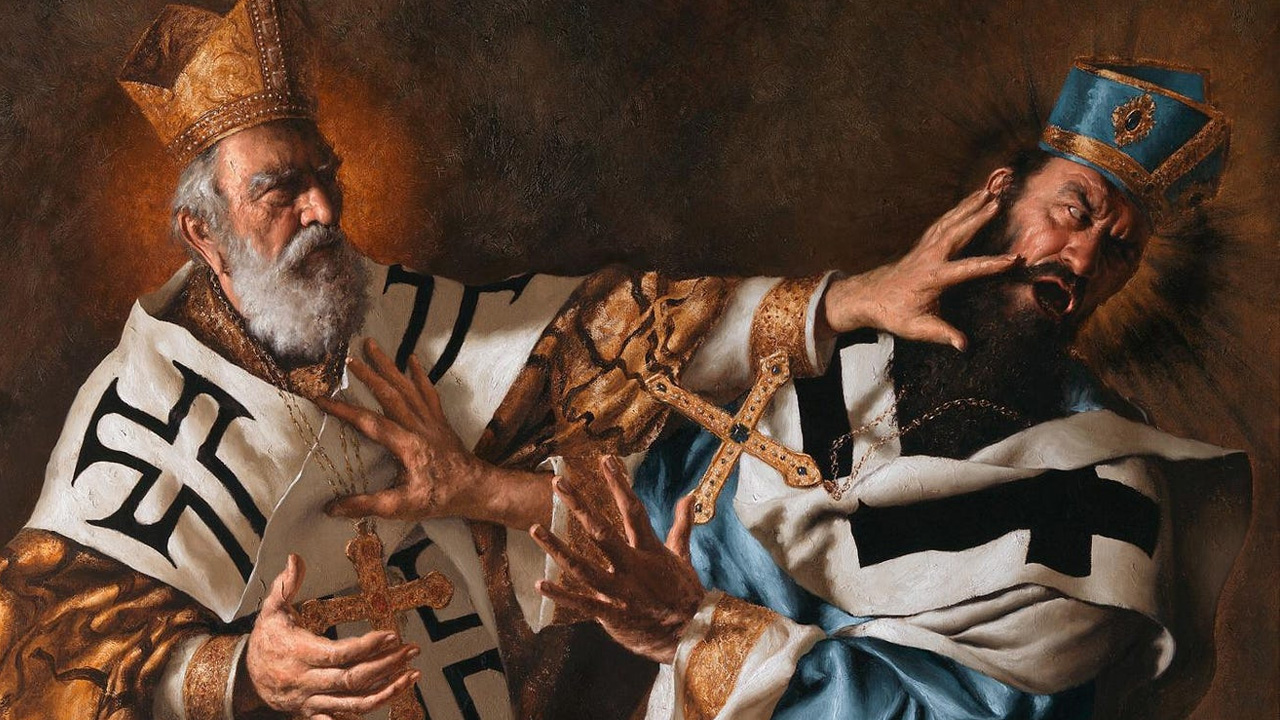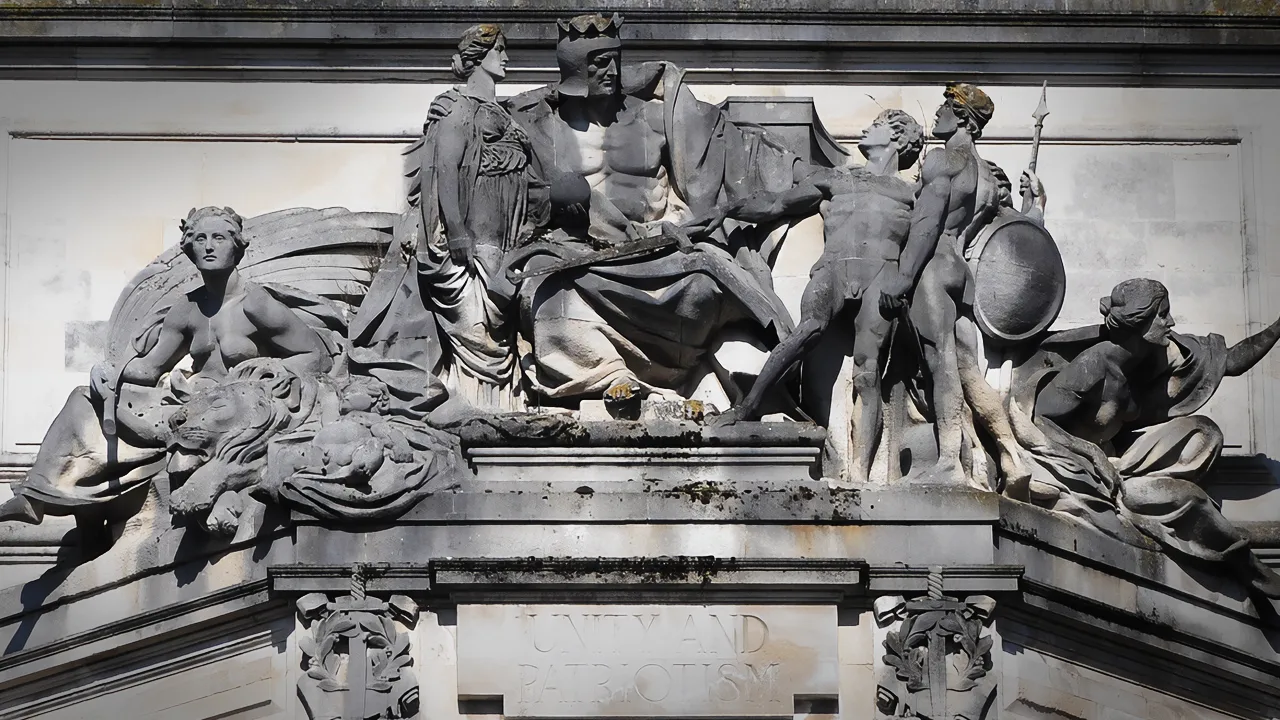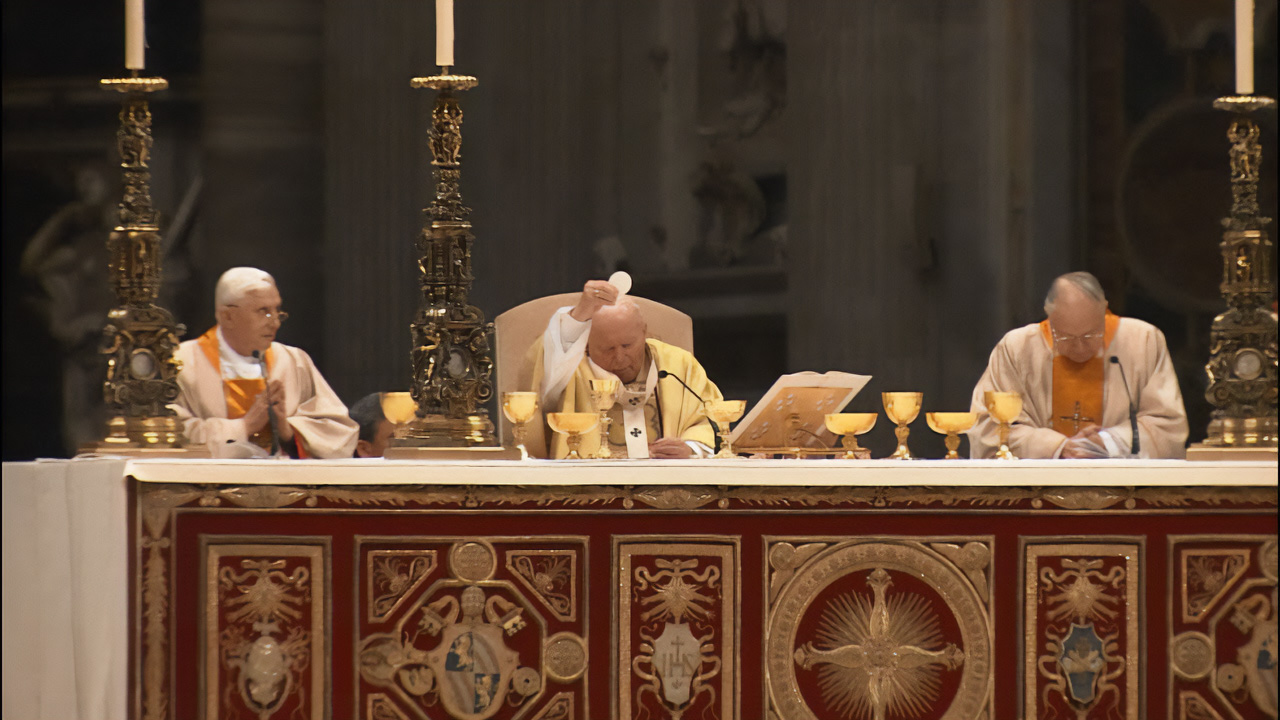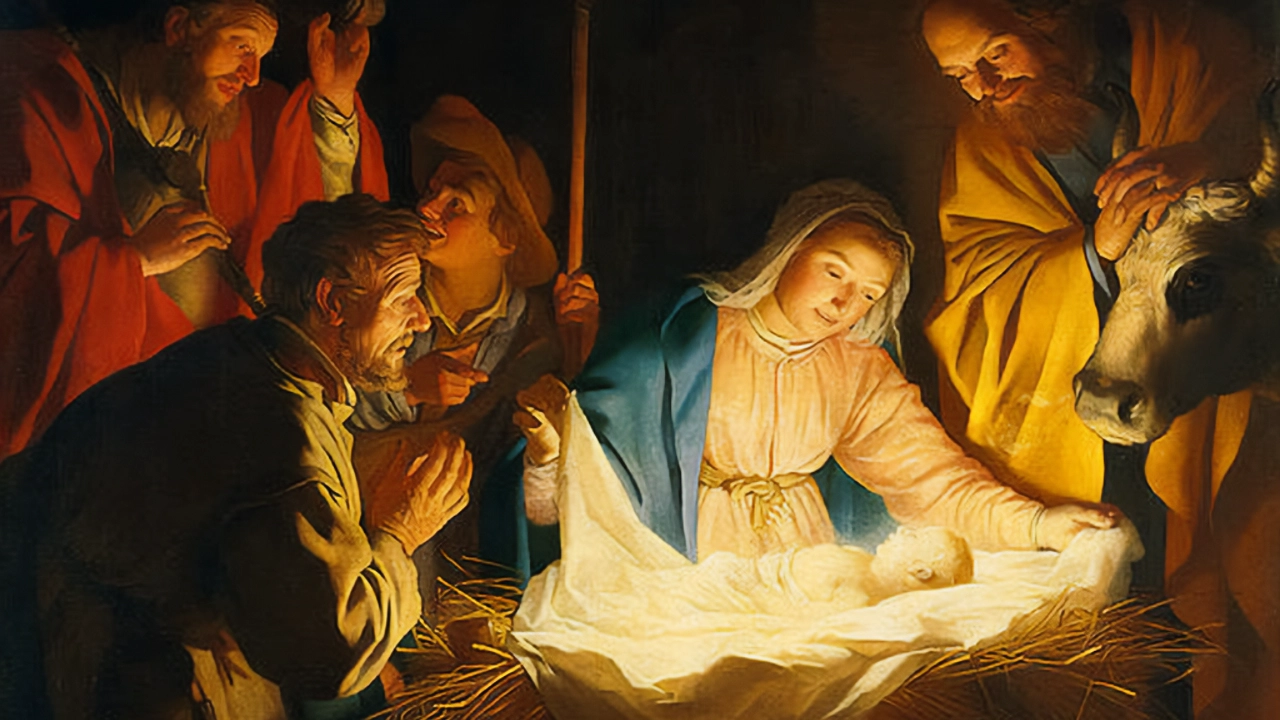Question:
Dear Fr. Fuentes,
I was just assailed by a doubt yesterday when I listened to a radio program where the topic of “Liberation Theology” was mentioned. It sounded to me like something that is not very accepted by the Catholic Church. Could you let me know if I am right? What is wrong with this theology? What does it consist of? I am Catholic and studied at the Formation Institute for the Laity in the Service of Parish Pastoral Care and I had never heard of this theology. Thanks in advance for your advice. I remain at your disposal for any questions or doubts.
Response:
I share with you this article entitled John Paul II and Liberation Theology:
On the 16th of October 1979, John Paul II was elected Pope. To date there are many actions in his service to the Church that stand out. His tireless travels which began with the Mexico trip (1979) have deeply moved the whole world. In 1985 he convoked an Extraordinary Synod of Bishops to reflect on the Second Vatican Council, and to urge the faithful to know it and apply it. His concern to unmask a stream of thought called Liberation Theology undoubtedly stands out. In August of 1984, St. John Paul II approved an Instruction of the Congregation for the Doctrine of the Faith which aims: “to draw the attention of pastors, theologians, and all the faithful to the deviations, and risks of deviation, damaging to the faith and to Christian living, that are brought about by certain forms of liberation theology which use, in an insufficiently critical manner, concepts borrowed from various currents of Marxist thought.”[1] It is therefore, a whole “current of thought which, under the name ‘theology of liberation’, proposes a novel interpretation of both the content of faith and of Christian existence which seriously departs from the faith of the Church and, in fact, actually constitutes a practical negation” (Libertatis, VI, 9).
The so-called “liberation theology” assumes the Marxist analysis of reality and its principles:
- Historical materialism: which indicates the causes of historical events are exclusively economic and history is the history of class struggle
- Praxis (practice): truth is not [does not exist], but is made; what matters is orthopraxis (correct practice/behavior).
These Marxist principles are applied to the interpretation of the Gospel and pastoral practice, and thus disfigure our faith. For “Theology of Liberation”:
- Jesus Christ: He is not considered as true God Incarnate who, with His Death and Resurrection, has redeemed us, but as a symbol of humanity that fights for liberation from the ‘oppressors’ and who dies in defense of the poor.
- The Church: She should take part in the fight because “neutrality” is impossible since it is equivalent to being with the powerful. Hence, she must have a “preferential option for the poor” and become the “Church of the people” which is born of the people and which sees the sacramental hierarchy as the “ruling class” and therefore must be combatted. (Puebla, nn. 262- 263)
- Faith is reduced to “fidelity to history”; hope to “confidence in the future”; charity to the “option for the poor”.
- The Sacraments: They are “celebrations of the people fighting for liberation”: the people are indoctrinated in this sense by means of homilies, changes in the liturgy, etc., in order that “they become aware of class” and are encouraged to fight against the “ruling class”. Curiously, the Church thus becomes – according to these “theologians” – with respect to the poor, what the communist party claims to be with respect to the proletariat.
- Eschatology is replaced by the “future of a classless society” as the goal of liberation in which Christian love for all, universal fraternity, is “made true”. Evidently this is a dangerous accumulation of errors as it is a complete subversion of Christianity.
The errors can be summarized as follows:
- The radical error lies in the same “hermeneutic principle” with which the Gospel is interpreted in order to draw from it a praxis: this principle is historical materialism, which denies the priority of being over doing, and therefore of the truth and the good of the human act. This principle is totally false, and it is both undemonstrated and unable to be demonstrated.
- Class warfare is not only an error because it is contrary to charity (there can be a just war, there is legitimate defense, etc.), but it is an error above all because it is conceived as something necessary, inescapable, and constitutive of history denying the freedom of the person and his capacity to direct history through freedom and counting on Divine Providence.
- Besides denying fundamental truths (about Christ, the Church, the Sacraments, etc.), in practice, it leads to submitting the Church to a determined political direction, which is not only foreign to its supernatural mission, but also leads to a deplorable human situation, as in socialism in practice, in which the person has no value nor is recognized in his dignity as a child of God.
However, we should keep in mind that there can be a true theology of liberation, that is, from sin and its consequences (not only its material consequences). “One of the conditions for necessary theological correction is giving proper value to the ‘social meaning of the Church’”.
“The teaching of the Church on social issues indicates the main lines of ethical orientation. But in order that it be able to guide action directly, the Church needs competent people from a scientific and technological viewpoint, as well as in the human and political sciences… Lay persons, whose proper mission is to build society, are involved here to the highest degree” (Libertatis, XI, 14). The Instruction (Libertatis) of 1984 “stated the intention of the Congregation to publish a second document which would highlight the main elements of the Christian doctrine on freedom and liberation.”[2] The Congregation for the Doctrine of the Faith published a second instruction on March 22, 1986 called Instruction of Christian Freedom and Liberation. It reads: “Between the two documents there exists an organic relationship. They are to be read in the light of each other.” (n. 2) The Instruction of March 1986 “limits itself to indicating its principal theoretical and practical aspects” of freedom and liberation; concepts intimately related to each other, which must be understood in their proper sense, since those “deviations, or risks of deviation, damaging to the faith and to Christian living” (n. 1; Libertatis, Introduction) are still in force and “Far from being outmoded, these warnings appear ever more timely and relevant” (n. 1). Some of the exponents of “Liberation Theology” have tried to make it appear that the Church “approves” the erroneous “Theology of Liberation” that they support by relying on this second document.
Nothing could be further from the truth.
The second document sets out the true concept of freedom: “Freedom is not the liberty to do anything whatsoever. It is the freedom to do good, and in this alone happiness is to be found. The good is thus the goal of freedom. In consequence man becomes free to the extent that he comes to a knowledge of the truth, and to the extent that this truth – and not any other forces – guides his will” (n. 26) It also explains the need for liberation from evil, from sin. The document highlights the role that the Church has always played in helping mankind: “The Church is firmly determined to respond to the anxiety of contemporary man as he endures oppression and yearns for freedom. The political and economic running of society is not a direct part of her mission. (cf. Guadium et Spes, 42). But the Lord Jesus has entrusted to her the word of truth which is capable of enlightening consciences. Divine love, which is her life, impels her to a true solidarity with everyone who suffers. If her members remain faithful to this mission, the Holy Spirit, the ‘ source of freedom, will dwell in them, and they will bring forth fruits of justice and peace in their families and in the places where they work and live.” (n. 61)
Fr. Miguel A. Fuentes, IVE
[1] Instructions on Certain Aspects of the “Theology of Liberation” (Libertatis Nuntius), Introduction. See here.
[2] Congregation for the Doctrine of the Faith, Instruction of Christian Freedom and Liberation, March, 1986.
Original Post: https://www.teologoresponde.org/2014/03/20/que-es-la-teologia-de-la-liberacion-que-se-puede-decir-de-ella/
Other Posts: What is the difference between the soul and life?

